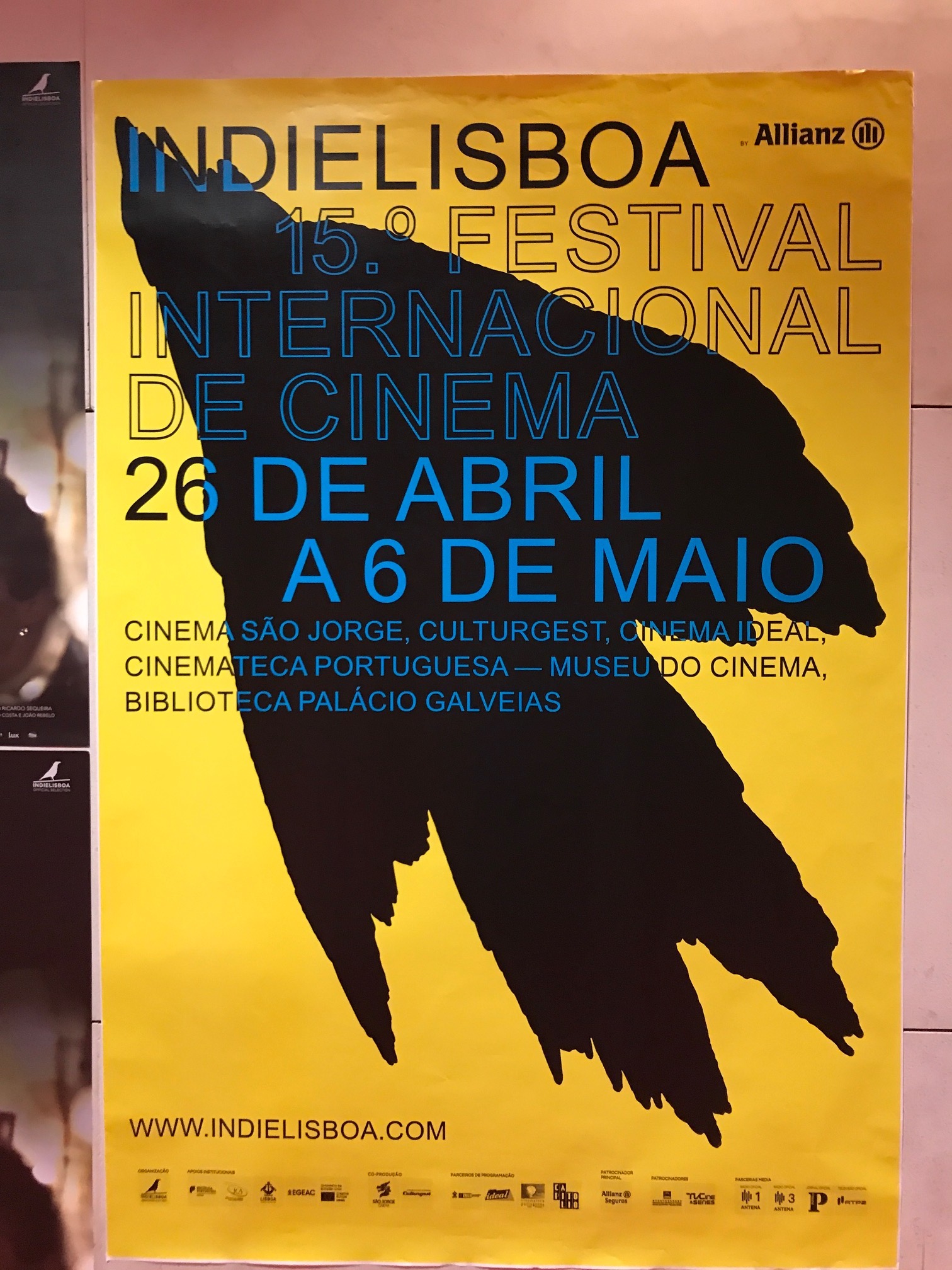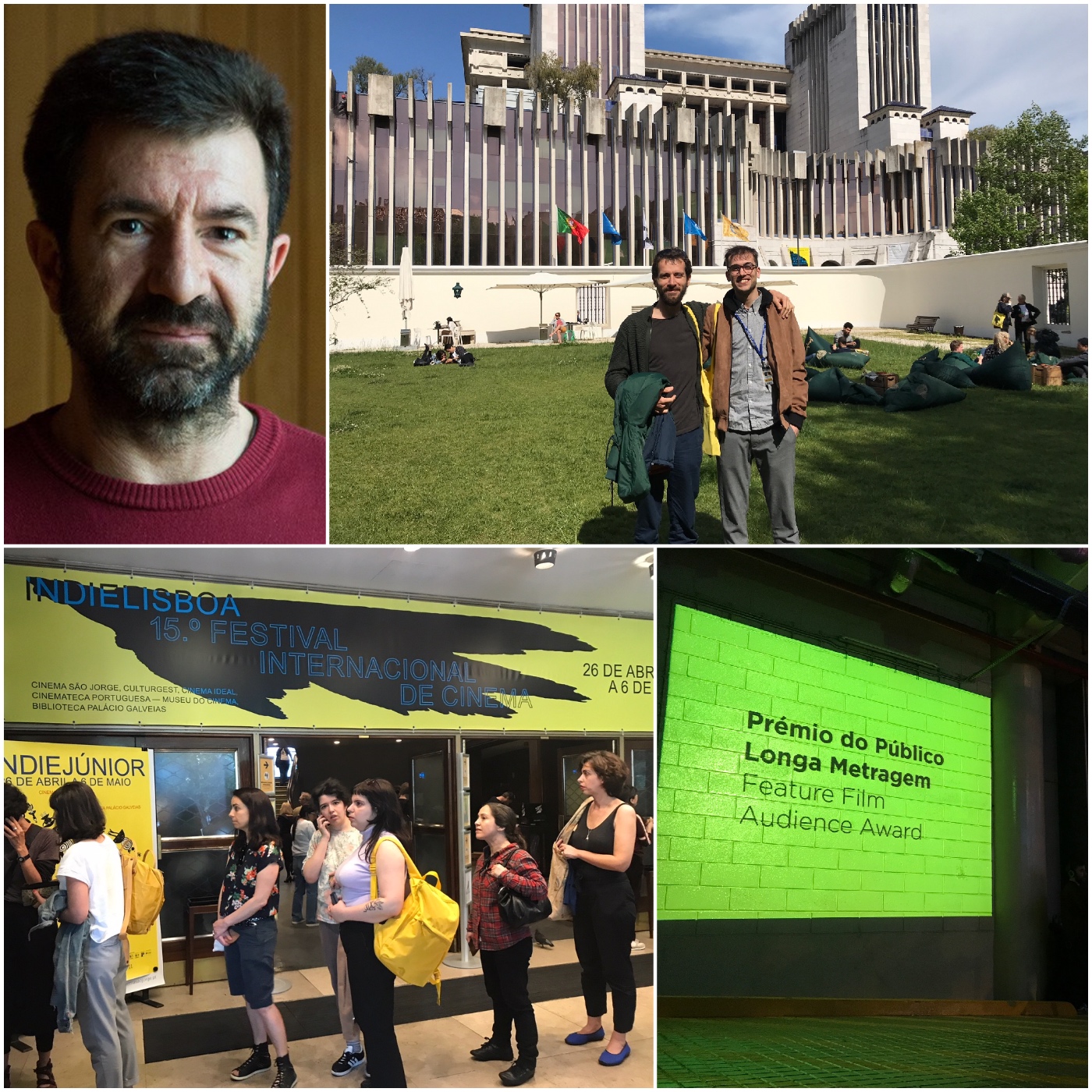
- Festivals
Inside Indie Lisboa
Showcasing films outside the mainstream and connecting indie filmmakers is part of the mission of the IndieLisboa International Film Festival, which held its 15th edition this year in Lisbon, Portugal. Nuno Sena, one of the three festival directors, is very happy how it went: “The most remarkable achievement of this year’s festival was the increase in audience numbers. The festival has reached more than 36,000 spectators. Compared to 2017, that is a 20% increase and our best result since 2010.”
246 films – 82 features and 164 short films from all over the world were shown over a ten-day period. 17 of the features and 32 of the shorts were homegrown films from Portugal. The independent films shown at the Festival follow a noticeable trend towards docudrama. While he stresses how diverse the cinematic landscapes of the festival was, Sena agrees that “the cross-pollination of fiction and documentary in contemporary cinema is probably one of the most visible aspects of our selection.”
Case in point: Iván Castiñeiras’ short Trajectory Drift. The director from Galicia who studied film in Portugal and France tells the story of two immigrants, one from Angola and one from Kuwait, who play themselves in what he calls an “allegoric travel of two characters inside a container”. He met the two men in the refugee camp in Calais where they waited to get to the UK. The three became friends, they wrote the film about the journey on a container boat and what got them there together. “It was an amazing experience to work with these two people who would have never thought they’d be in front of a camera. They had important experiences that the public should see – now in a cinematic way because people have gotten tired of immigrants in the news. So we try to send the message in a different and dignified way. For me, it’s important that life and cinema go hand in hand. After we wrapped for the day, we went to dinner together. How I shoot is how I want to live, but I understand that is not mainstream.” And that is why Castiñeiras feels at home at IndieLisboa. “The Festival takes a lot of risks here. They chose films mainstream Festivals would not.’ Argentinian director Lucrecia Martel whose work was celebrated with a retrospective at the festival (as was the work of French filmmaker Jacques Rozier) confirmed that Castiñeiras is on the right path. “She said that we need to take care of our narratives. Sometimes that does not mean a beginning, middle and an end. Different voices are important.”

Scenes from Indie Lisboa 2018 (from top left): co-director Nuno Sena; director Ivan Castiñeiras and sound man Nacho Canosa; closing night ceremony; festivalgoers.
marlene von arx/hfpa
And so is the nurturing of new talent. IndieLisboa featured a film workshop for children and awards were given for film school and university projects. The Festival tries to help to develop the Portuguese cinema, which experienced a Golden Age in the thirties and forties with among others the arrival on the scene of Manoel de Oliveira whose first feature film Aniki-Bóbó (1942) and its realistic style predated the Italian neorealism by a few years. Portuguese cinema (is again) experiencing an extraordinary moment, says Sena: “The creativity is at a peak. Portuguese films are being selected to major Festivals.” Among the stars of the new Portuguese wave: João Salaviza, who won the Golden Bear with Rafa and the Palme d’Or with Arena in the Best Short Film category. Leonor Teles who at 23 years old became the youngest director to win the Golden Bear for Best Short in Berlin 2016. And André Gil Mata who won the Best Director Award at this year’s IndieLisboa with the feature film Drvo (The Tree), which follows a long, quiet trek to refill water bottles down at the river.
Making films in Portugal remains hard though. There is government funding, but budgets have been lowered in recent years and sometimes put on hold altogether due to the economic crisis in the country. And there are new cinema laws, including a contested jury selection law that has some filmmakers in Portugal worried that transparency and impartiality might be challenged. “Yes, there is uncertainty regarding public financial support, a controversial new cinema law and systematic delay in funding”, admits Sena. That’s why he is also determined that IndieLisboa expands the industry side of the Festival: “We want to keep the essence of being a festival about innovation, originality, and independence of cinema. At the same time, we would like to create a platform for directors, producers, distributors and programmers who want to develop, finance and promote their films.”

